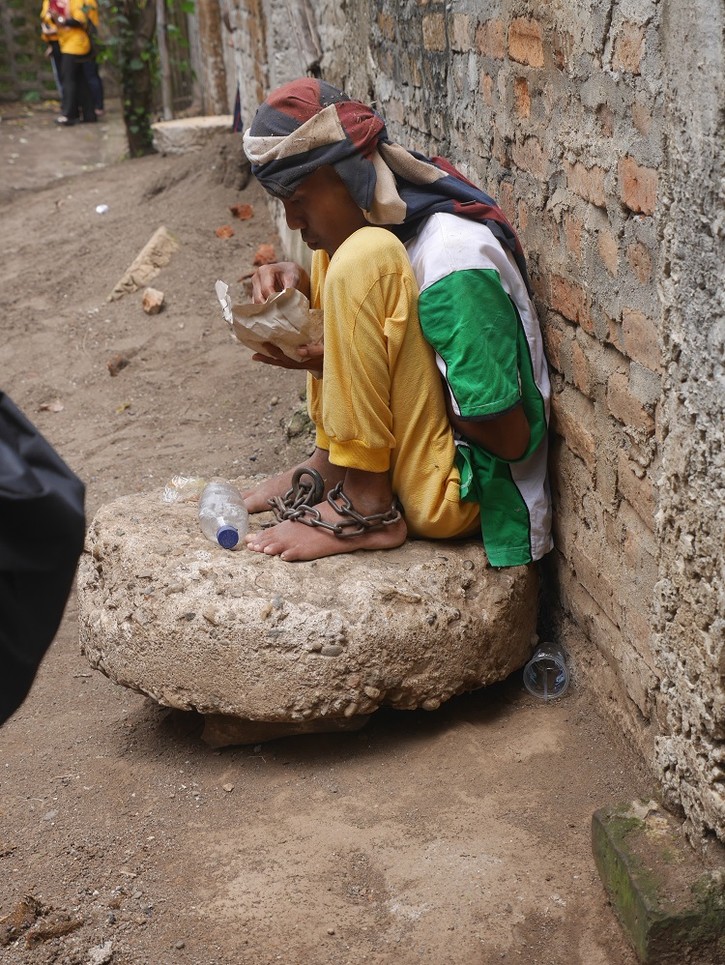by HANS POLS

Versi Bh. Indonesia
An introduction to the edition
Hans Pols
Indonesia faces tremendous challenges in the field of mental health. There is a severe shortage of mental health personnel as well as treatment and care facilities. The stigma against mental illness and psychosocial disabilities is strong. Fortunately, there are many committed and enthusiastic psychiatrists, psychologists, mental health nurses, social workers, mental health advocates, groups formed by individuals with a lived experience of mental disorder, caregivers, and volunteers dedicated to change. This edition of Inside Indonesia investigates the current state of mental health care in Indonesia, explores ideas on how to realise improvements, and reports several successful and innovative initiatives.
According to the data of the Agency of Health Research and Development of the Indonesian Ministry of Health, there are just over 450,000 families in Indonesia with at least one family with schizophrenia. In just over four million families, at least one family member has depression.
For many individuals with mental disorder, access to mental health care remains very difficult, especially in rural and remote areas.
The Indonesian government currently dedicates approximately 1 per cent of its total health budget to mental health; total health expenditure is around 3 per cent of GDP. The capacity of Indonesia’s 48 mental hospitals and 269 psychiatric wards in general hospitals is much lower than the demand. In the major urban centres, a modest number of psychiatrists and clinical psychologists operate private practices. There are many informal and unofficial institutions, generally faith-based, that accommodate individuals with mental illness. Conditions in these institutions tend to be dire. There are currently initiatives to provide mental health care in community health centres (puskesmas), a development that is very promising but only in its initial stages. Eight provinces do not have a mental hospital and three do not even have a single psychiatrist. There are currently just under 1,000 psychiatrists, 2,000 registered clinical psychologists, and close to 7,000 community mental health nurses, for a population of almost 270 million. If Indonesia had the same number of psychiatrists per capita as Australia, there would be almost 38,000. Indonesia’s Ministry of Health estimates that about 90per cent of individuals with mental disorders or psychosocial disabilities do not receive adequate mental health care.
The condition of individuals with severe mental illness in Indonesia regularly receives international attention. In 2017, Human Rights Watch published a highly critical report entitled Living in Hell: Abuses against People with Psychosocial Disabilities in Indonesia. This report highlights the dismal conditions in social welfare and informal institutions, which are often unhygienic and overcrowded. Inmates are regularly shackled. Medical care is only sporadically provided.
In rural and remote areas, some families shackle individuals with severe mental illness, confine them to small rooms or huts, or lock one or both legs in heavy wooden blocks. This practice is called pasung. Families do this to prevent violence, and damage to their own livestock and property or that of their neighbours. More than 57,000 Indonesians have experienced pasung at least once in their lifetime. In July 2018, the number of individuals thus confined was estimated to be around 12,800 – 6,000 fewer than 2 years before.
Shackling
Inside Indonesia for more
